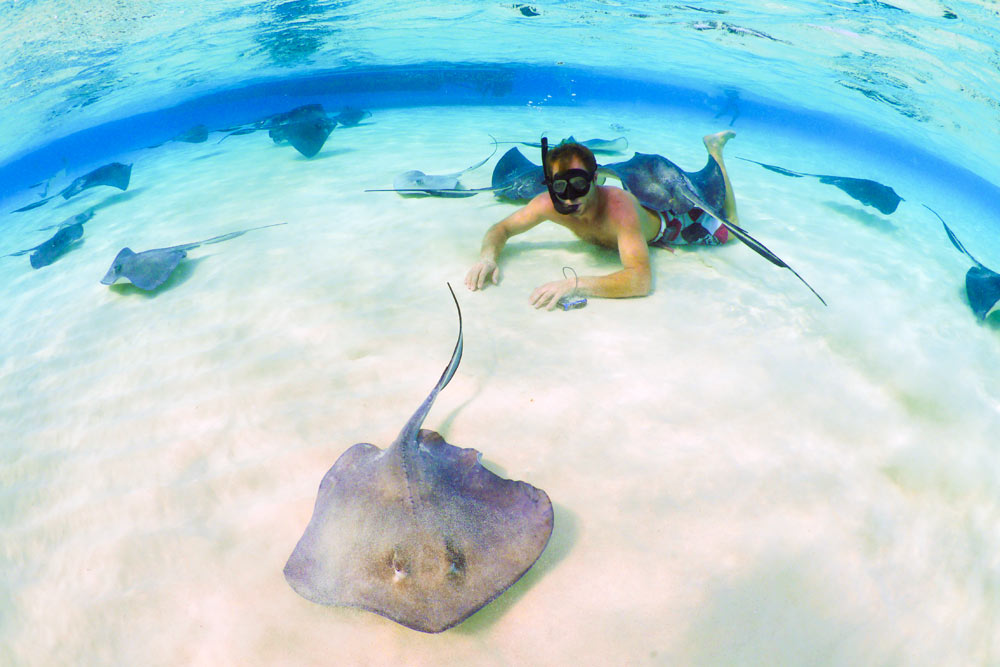

The mantas can also be caught as bycatch and ghost fishing (when old lines and nets get them caught). Ironically, consumption of manta ray gill plates has risen due in part to a decrease in the availability of shark fins. The manta rays are being fished because of the trade in gill plates (opens in new tab-warning graphic content) which are used in soup. Other reasons include over-fishing for, unbelievably, Chinese medicine. Manta rays are vulnerable and their population is decreasing due to a multitude of reasons including the fact they reproduce infrequently ( every 2 to 5 years) You could never say with 100% certainty that it is safe to swim with manta rays.
SWIM WITH RAYS PLUS
However, the water was very deep and deep water and strong currents plus wave action can cause harm in weak swimmers. We felt very safe swimming and snorkelling with mantas, even with children. However, they are huge creatures and could potentially harm you, particularly if they are jumping out of the water.

They are filter feeders so cannot really bite you either. Manta rays are fairly safe to swim with as they lack the stingers found in their cousins, the stingrays. They are harmless gentle giants and swimming with them is considered pretty safe. No, unlike their close relatives, stingrays, who sadly saw off Steve Irwin not far from where we live in Port Douglas Australia, manta rays do not sting, nor do they have a stinger of any sort. They have a skeleton made of cartilage, as all sharks and rays do, and they give birth to live young. These big fish can have a wingspan of about 22 feet and the largest ones can weigh 3000 pounds or 1360 Kilograms and eats people – I mean plankton. The giant manta ray is the larger of the two. It is thought that there is another type of manta called the Atlantic manta ray but that may just be another name for the giant manta. They are known as mobulid rays along with the devil ray. There are 2 types of manta ray, the giant manta ray and the reef manta ray. Cancellations and no-shows will not be refunded or rescheduled.The word manta comes from the Spanish word for mantle. There will be a change fee of $20 per ticket if notice is given within 14 days of the original reservation date. The Aquarium will reschedule your encounter if given notice more than 48 hours in advance. All participants must be ticketed for the Interaction.ĬANCELLATION AND DATE CHANGE POLICY: The program fee is non-refundable however, the program will be rescheduled whenever possible.Guests 15 and under must come with a participating adult (one adult per 3 minors required) g uests 17 and under must have a program liability waiver signed and dated by a parent or court appointed legal guardian.Participants must be at least 48 inches (4’0”) tall and 7+ years old in age.Beginning October 26, 2022, guests will no longer be required to wear masks during the program.



 0 kommentar(er)
0 kommentar(er)
